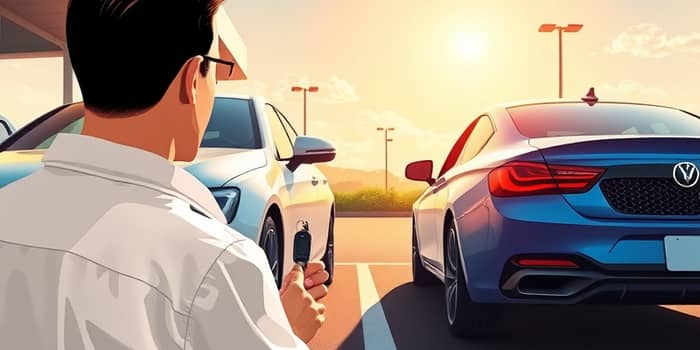Deciding whether to lease or buy a car is a significant financial choice that impacts your budget, lifestyle, and long-term goals. In 2025’s market, with elevated prices and high interest rates, this decision requires careful analysis of both options.
Understanding Leasing a Vehicle
Leasing allows you to drive a new car for a set term—typically two to four years—without ownership. Your payments cover the vehicle’s depreciation cost plus finance charges, rather than the full purchase price.
Key characteristics of leasing include:
- Lower upfront costs, often limited to a security deposit and first month’s payment.
- Factory warranties and sometimes complimentary maintenance throughout the lease.
- Defined mileage limits—usually 10,000–15,000 miles per year—with fees for excess use.
Buying: Ownership and Long-Term Value
When you buy, you either pay in full or finance the vehicle, making monthly payments until you build equity. After the loan is paid off, the car becomes a valuable asset you can sell or trade in.
Ownership offers:
- Unlimited mileage freedom and the ability to customize or modify your vehicle.
- Long-term cost savings after the loan term ends, as no further monthly payments are required.
- Opportunities to capitalize on the car’s residual value when you sell or trade.
Comparing Costs: Lease vs. Purchase
Analyzing total expenses over time is essential. A lease can offer lower monthly payments but yields no equity. Buying demands a higher payment initially but can be more economical if you keep the car long term.
Who Should Lease and Who Should Buy
Your personal needs and driving habits determine the best path. Leasing can work well if you prefer a new car every few years and value the latest technology without worrying about resale.
Purchasing makes sense for those intending to keep a car beyond the loan term or who exceed typical lease mileage limits. Ownership provides greater freedom of use and long-term financial benefit.
Consider the following checklist to guide your choice:
- Annual mileage: Are you under 12,000 miles per year?
- Vehicle use: Do you want to modify or customize your car?
- Budget priorities: Is short-term affordability or long-term savings more important?
- Ownership value: Do you seek an asset with resale and trade-in worth?
- Business use: Are you eligible for tax deductions on lease payments?
Final Considerations
Beyond numbers, reflect on your lifestyle. Lease if you crave the ease of switching to newer models and prefer predictable maintenance under warranty. Buy if you aim for stronger financial position long-term and relish the idea of full ownership.
Always run detailed cost comparisons with current interest rates, local taxes, and manufacturer incentives. Evaluate how long you intend to keep the vehicle and your tolerance for mileage caps or potential wear-and-tear charges.
Ultimately, whether you choose leasing or buying, a thoughtful approach that aligns with your driving patterns and financial objectives will ensure you make the best decision in today’s dynamic auto market.
References
- https://caredge.com/guides/buy-or-lease-a-car-in-2025
- https://www.youtube.com/watch?v=msymjokIb1o
- https://www.consumerreports.org/cars/buying-a-car/leasing-vs-buying-a-new-car-a9135602164/
- https://www.hondacity.net/blogs/6125/leasing-vs-buying-whats-best-for-you-in-2025
- https://www.bankrate.com/loans/auto-loans/leasing-vs-buying-a-car/
- https://www.caranddriver.com/auto-loans/a41867103/leasing-vs-buying-financing-car/
- https://www.kbb.com/car-advice/car-leasing-guide/
- https://www.investopedia.com/articles/personal-finance/012715/when-leasing-car-better-buying.asp










